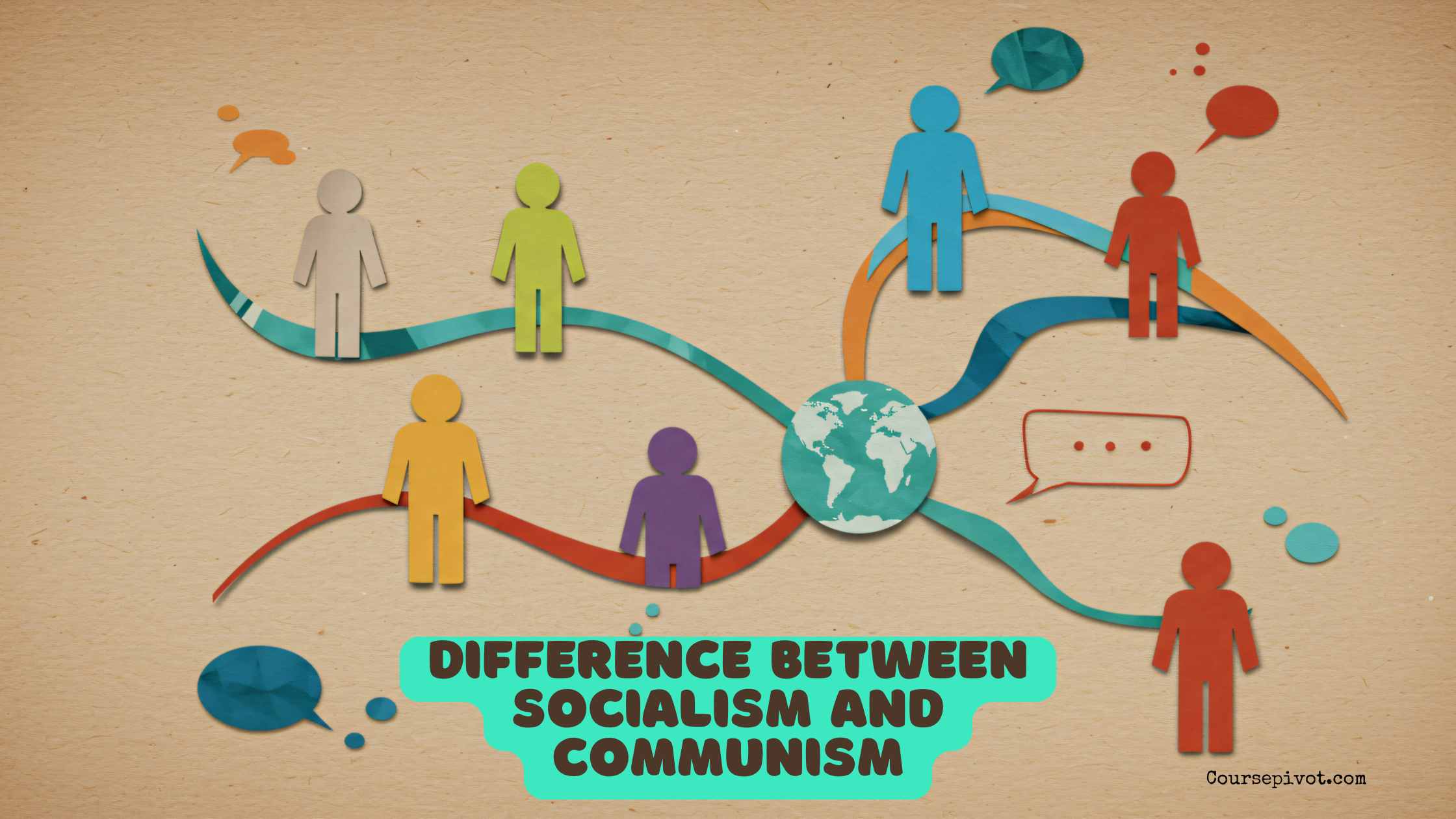
Difference between socialism and communism
In 2024, a U.S. congresswoman called a modest tax increase “literally communism.” In Europe, people living in some of the world’s richest social-democratic countries casually call themselves “socialists” while running multimillion-dollar businesses. Both statements are historically and technically inaccurate. The confusion isn’t new — the words have been weaponized for over a century — but the actual difference is surprisingly straightforward once you strip away the propaganda.
Here’s the real distinction, explained plainly with examples and no ideological spin.
| Aspect | Socialism | Communism |
|---|---|---|
| Core Idea | The workers or society should own/control the major means of production (factories, resources, etc.) | A classless, stateless, moneyless society where all property is communally owned and “from each according to ability, to each according to need” |
| Private Property | Personal property (your house, car, toothbrush) yes. Private ownership of major industries usually no | All property is communal. Even personal possessions are theoretically shared as needed |
| Economic System | Can have markets, money, wages, and prices | No money, no wages, no markets — distribution based purely on need |
| Government / State | A state exists (often democratic) to manage the transition and economy | The state is supposed to “wither away” completely after the revolution |
| How You Get Your Salary | You still get paid wages (often more equal than capitalism) | No wages. Goods and services are distributed by the community |
| Real-World Examples That Existed | Nordic model (strong welfare + private business), Yugoslavia (worker self-management), 1970s Sweden, Israel’s early kibbutzim + private sector | None have ever fully existed at scale. Closest attempts: early Soviet Union (1918–1920s), Mao’s Great Leap Forward communes, Cambodia under Pol Pot (all collapsed into authoritarian state capitalism or mass death) |
| Transition Stage (Marx’s own words) | The necessary first stage after capitalism (sometimes called “lower-stage communism”) | The final goal after socialism has matured and class differences disappear |
| Democratic? | Can be (and often is) fully democratic | Theoretically yes, but never achieved without one-party dictatorship |
| Modern Parties That Use the Label | Democratic Socialists of America (DSA), UK Labour Party under Corbyn, Spain’s Podemos | Almost no one today openly runs on “we want full communism now” (except tiny fringe groups) |
The One-Sentence Summary
- Socialism is when society collectively owns or heavily regulates the major means of production — but money, markets, and the state still exist.
- Communism is the utopian end-state where money, markets, classes, and the state itself have all disappeared.
Marx and Engels themselves used the terms this way: socialism is the bridge, communism is the destination that humanity has never actually reached.
Real-World Spectrum (From Mild to Extreme)
| Country / System | Description | Label its leaders/supporters use |
|---|---|---|
| Norway, Denmark, Finland | Private companies + very high taxes funding universal welfare | Social democracy (not socialism) |
| 1950s–1980s Sweden | Private ownership + strong unions + massive public sector | Called itself socialist (democratic socialism) |
| Yugoslavia (Tito era) | Factories legally owned by workers, not the state | Market socialism |
| Cuba, Vietnam, China today | State owns almost everything, but markets and billionaires now exist | Officially “socialist” (in transition toward communism) |
| North Korea | Total state control, hereditary dictatorship | Officially “socialist” but functionally something else |
| Anarchist communes (Spanish Civil War 1936–39, Rojava today) | Workers directly run production without a strong central state | Libertarian socialism or council communism |
Why the Confusion Persists today
- Cold War propaganda equated any government program with “communism.”
- American conservatives still use “socialism” to mean anything left of Ronald Reagan.
- Some young democratic socialists adopt the label because it sounds bolder than “liberal.”
- Actual communist parties (tiny worldwide) keep the original dream alive, but no country today claims to have achieved full communism.
Key Takeaways
- Socialism and communism are not synonyms.
- Every communist is (in theory) a socialist, but almost no modern socialist is a communist.
- No country has ever achieved the classless, stateless, moneyless society described as communism — attempts to force it produced authoritarian regimes instead.
- Most “socialist” countries people admire (Sweden, Denmark) are market economies with big welfare states — technically social democracies.
- The real political fight today isn’t capitalism vs. communism. It’s capitalism vs. different flavors of regulated capitalism with strong safety nets.
Call something “socialist” if you want, but unless it’s trying to abolish money and the state entirely, it’s definitely not communism.
Understanding the difference won’t settle every political argument — but it will stop the silliest ones.
Cite this article
You can copy and paste your preferred citation format below.
Martin, L. & Arquette, E.. (2025, November 25). Difference between socialism and communism. Coursepivot.com. https://coursepivot.com/blog/difference-between-socialism-and-communism/



